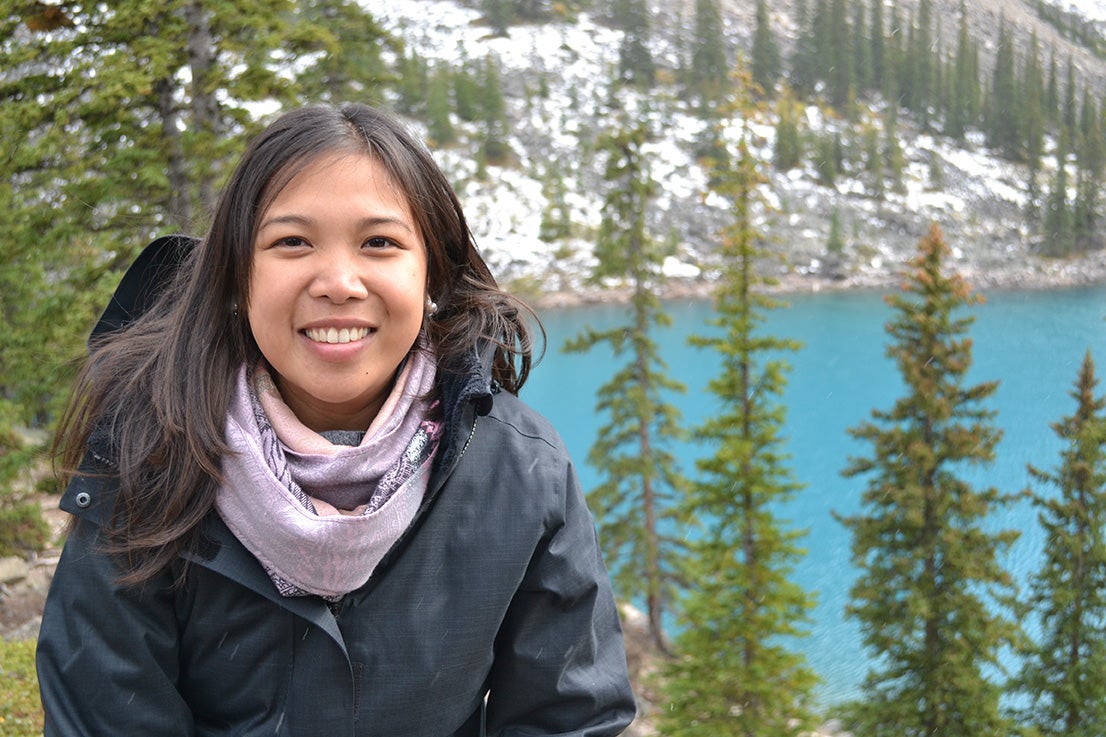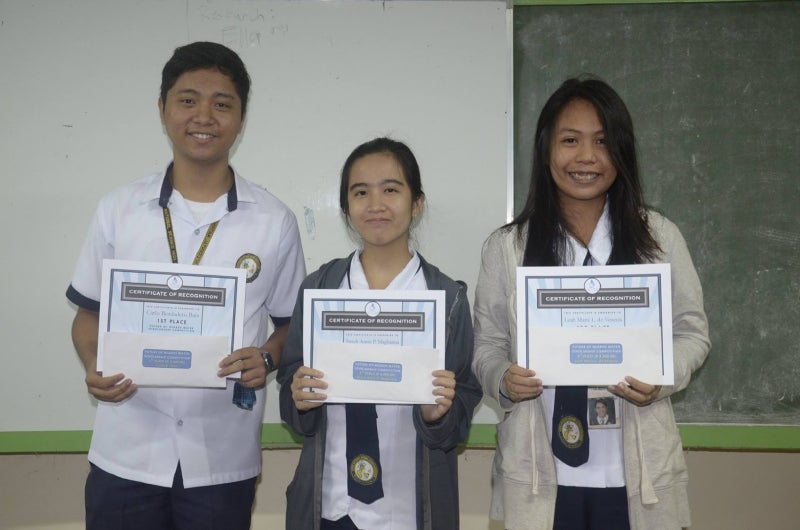Born and raised in the Philippines, Maricor Arlos didn’t think much about water until her family moved to Canada in search of better opportunities. After attending a Waterlution event, she realised that many people have connections to water and that it’s an important resource that needs to be discussed more.
“In the small Philippine town where I grew up, water issues were really not a priority for us since there were a lot more socioeconomic issues to worry about,” said Arlos. “No one really talked about major water issues, or thought about what we could do to protect our drinking water because there were so many other problems taking precedence. This was something I wanted to change.”

After completing her Master’s degree in Waterloo’s Faculty of Engineering, Arlos continued her education at Waterloo as a PhD student in the Faculty of Science and was part of the first Collaborative Water Program cohort. Arlos’ PhD research was very diverse and covered advanced treatment of micropollutants using nanotechnology, as well as the prediction of micropollutant exposure to wild fish in the Grand River.
Shortly after she started her PhD, Arlos started thinking about ways she could encourage the residents in her hometown to start thinking about and discussing water.
“I was very fortunate to have received numerous scholarships during my PhD that helped with my grad-school life substantially,” said Arlos. “I decided to pay it forward by sponsoring a scholarship essay competition in my hometown that encourages young minds to establish their connection with water – an opportunity that I did not have while I was there.”
Arlos called the competition “The Future of Negros Water Scholarship Competition” after the Philippine island, Negros, where her hometown Victorias City is located. She asked broad questions about the watershed and clean drinking water and received submissions that discussed population growth, urbanization and the lack of water policies as major drivers for the water quality issues in the watershed.

“The recipients of this scholarship were even more deserving of recognition than I initially thought, as they not only demonstrated hard work and deep thinking, but they did so in the face of significant personal adversity,” said Arlos. “The funds will hopefully help all the winners with their university education expenses.”
Currently Arlos is competing a Postdoctoral Fellowship at the Swiss Federal Institute of Aquatic Science and Technology (Eawag) where she focuses on the transport of representative micropollutants (pesticides, pharmaceuticals, etc.) in select Swiss surface waters and aims to link these predictions to the concentrations found in exposed organisms.
“My thesis is still focused on my own research field but the Collaborative Water Program helped me integrate the importance of interdisciplinary work during my talks at a conferences or when having a conversation with other researchers at networking events.”